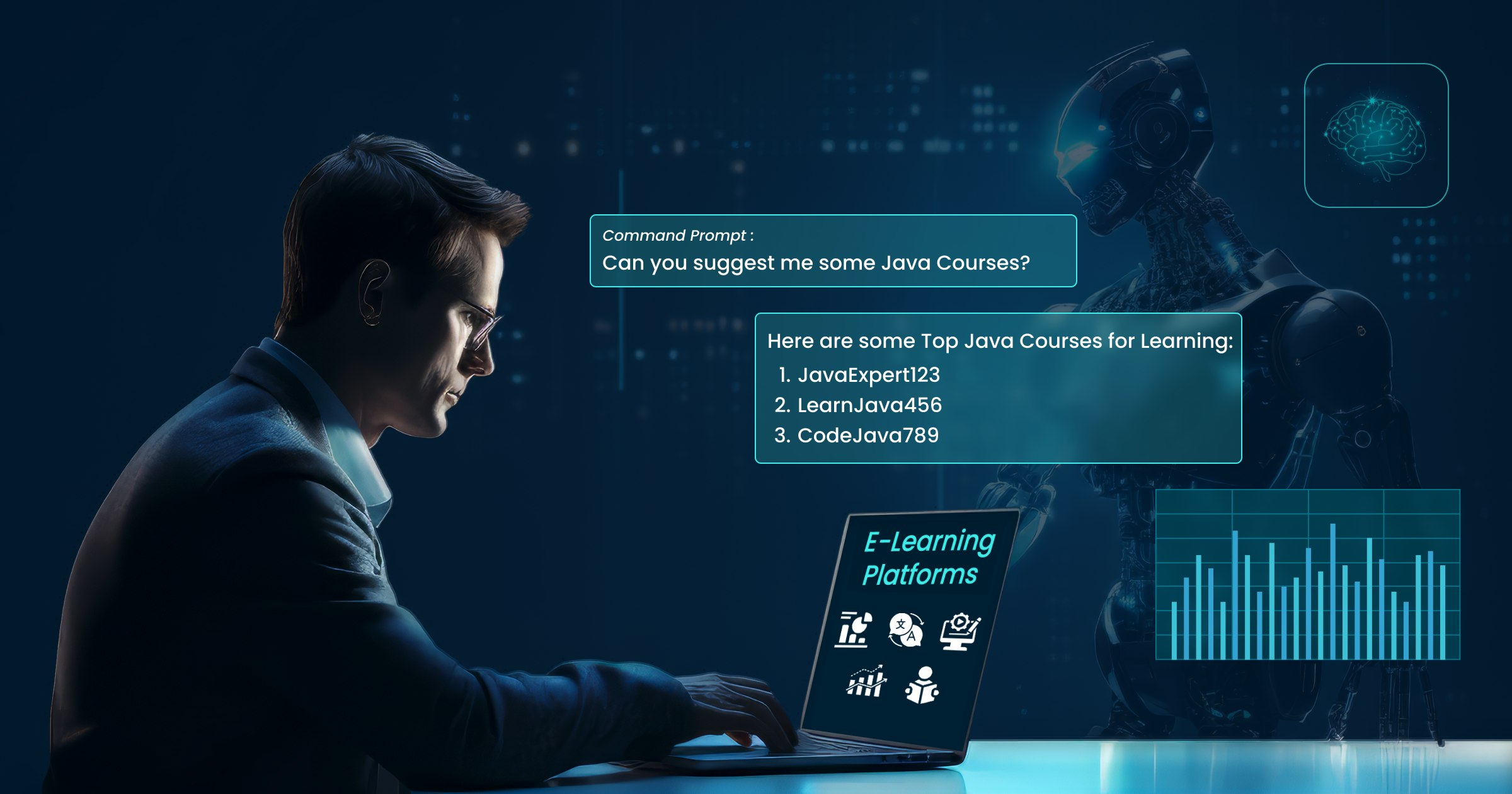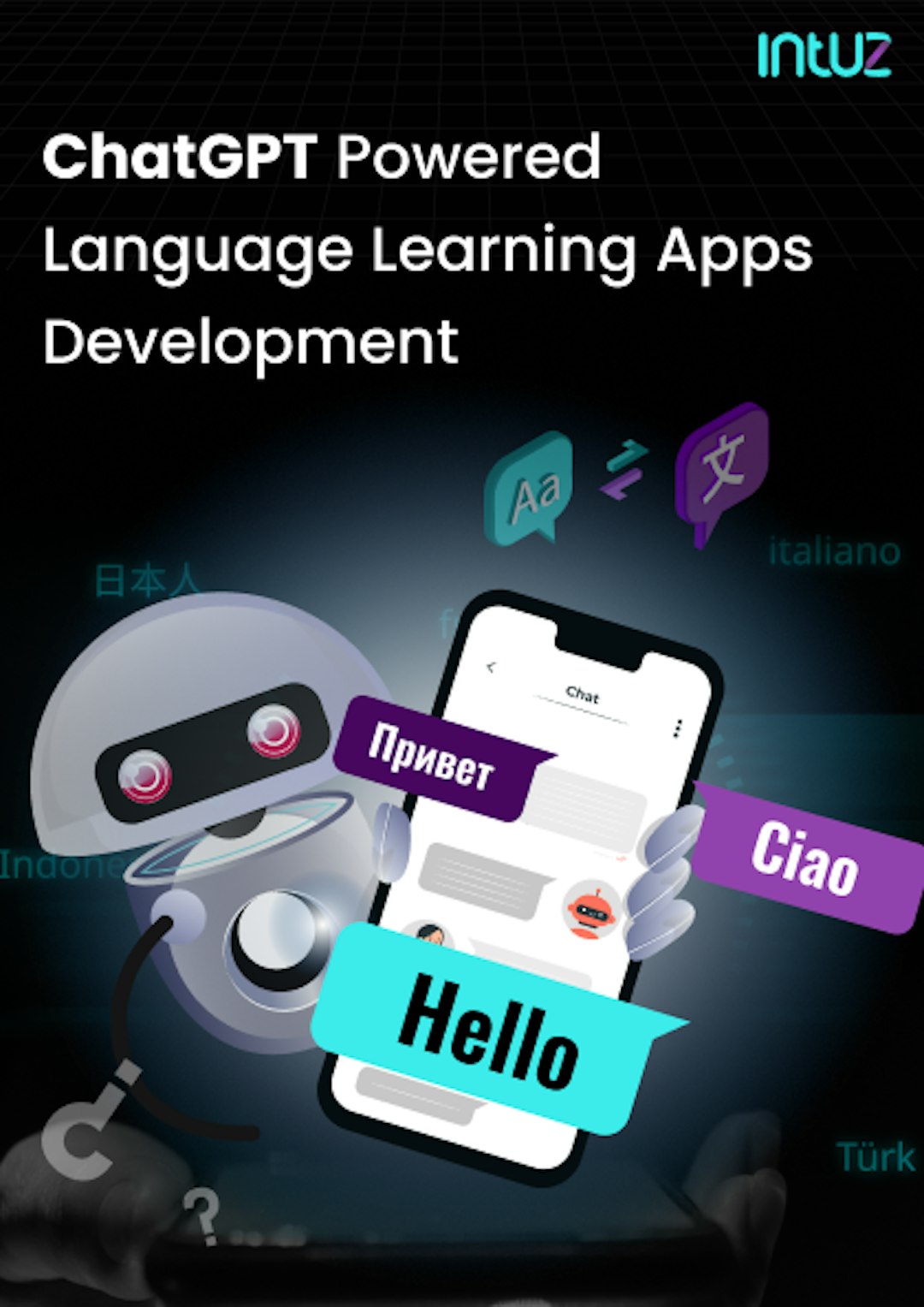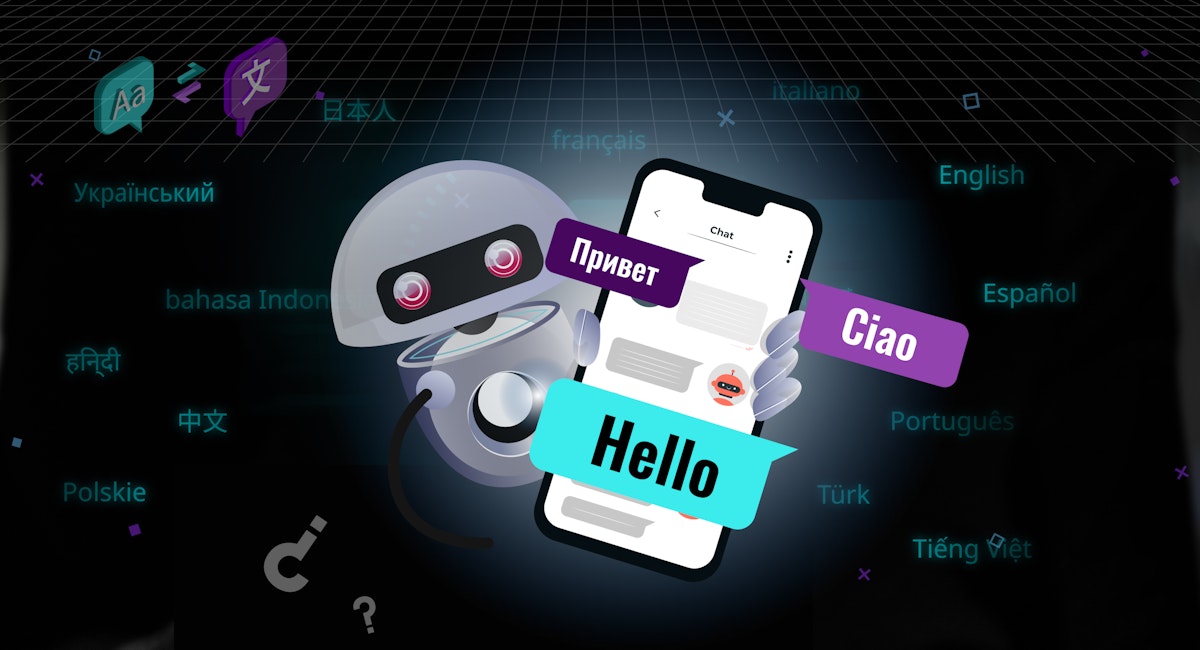Table of Content
Maximizing Learning Outcomes with AI in eLearning
Generative AI development services can customize the learning experience and process by delivering content suited for individual learning. By taking into account the individual’s pace, abilities, interests, and styles, it can tailor educational content and provide immediate feedback plus support.
eLearning has made education accessible, reaching out to millions of students across the globe. Generative AI in e-learning facilitates faster learning with task automation, generating quick summaries and customization, leading to better learning outcomes.
Let’s explore the overall impact of generative AI in e-learning.
The Role of AI in eLearning
Generative AI is a specific form of artificial intelligence that generates new information when prompted. Where artificial intelligence is pre-trained to facilitate the tasks, generative learning uses machine learning, natural language processing, and other technologies to learn from existing data and deliver the output.
1. Better Content Creation
You can use generative AI tools to source any information required to understand the topic. Educators can use generative AI-based learning apps to create coursework, worksheets, and assignments for various subjects.
This will save them the time and research required to read through endless pages to find relevant information for creating content.
Discussion is integral to effective learning, and generative AI-based learning apps can help initiate intelligent deliberations. They can provide thought-provoking discussion prompts that inspire students to dive deeper into their subject matter.
Individuals can tailor these prompts to talk about specific topics and even start a debate with AI to improve their understanding. An AI development company can help refine the AI program, allowing it to learn and become better than before.
2. Personalized Learning Experiences
With generative AI, different types of learners can study according to their preferences, strengths, and weaknesses. Smart AI algorithms adapt to the individual’s learning preferences and style, ensuring they access the right content at the appropriate time.
In generative AI e-learning apps, the strategists embed features to maximize the learning potential. Students can leverage Gen AI to understand complex topics in simpler language. Gen AI-based platforms can pave the path for low-performing students and help them improve.
How Intuz Built eLearning Platform for Healthcare Graduates for Preparation of Advanced Medical Examinations
Explore Now3. Virtual Mentors and Teachers
AI-based tutors and mentors can be available for the students 24/7 to answer all your questions and provide immediate feedback. The AI-based virtual mentors and assistants enhance the learning experience while making education accessible.
Moreover, taking into account a student’s learning style and preferences, virtual teachers can also identify areas of struggle. They can provide targeted guidance to the students, helping them overcome all the obstacles and achieve their educational goals.
This can help address inequity when it comes to out-of-classroom learning.
An eLearning app development company can integrate the generative AI platforms into their platforms to improve service delivery further.
4. Intelligent Learning Analytics
AI-based learning apps can also provide adaptive feedback. Using AI algorithms, these platforms track a student’s performance to create bespoke learning paths. They can recommend lessons, exercises, and topics to improve a student’s understanding.
Dedicated platforms are available that will analyze a student’s past performance, check for knowledge gaps, and provide personalized recommendations.
5. Language Learning & Translation
Learning a new language has never been easier than today. With Gen AI solutions, anyone can learn a new language with adaptive learning capabilities.
Existing language learning applications like Duolingo are already using AI to tailor the content according to the user’s understanding and capabilities. With generative AI, we can go one step further in curating interactive lessons and practice exercises for skill enhancement.
Moreover, generative AI tools can provide real-time translation to improve accessibility. AI’s natural language processing capabilities can quickly and accurately understand a user’s prompt response in the language they wish to learn.
As a result, Gen AI in e-learning languages removes all the barriers to ease the learning process.
6. Accessibility and Inclusion
Generative AI presents an exciting opportunity for all types of learners to become a part of the learning community. Foreign students can use it to understand the native language, correct spelling, and pronunciation, and get their written work checked.
Moreover, teachers can also use AI to create learning material according to their student’s capabilities. In schools, teachers can facilitate customized learning and let every student participate in the learning process.
The same applies to higher education and even to corporate training. AI-based advanced technologies like augmented reality can also become a part of training, and generative AI can be used to tailor the study material manifesting into experiential learning.
Generative AI-based learning systems have several advantages in education. However, it's crucial to understand the ethical considerations of using Gen AI for learning.
7. Predictive Analytics
AI in eLearning can deliver predictive analytics to help understand student behaviour and learning patterns. Some AI driven eLearning tools can even suggest tailored study plans. They can also flag at-risk learners, and optimise course materials to improve outcomes. All this can be done by analysing past performance with a data-driven approach.
8. Curated Testing
AI in eLearning revolutionises assessments with curated testing and offers adaptive exams based on student progress. The tools can craft personalised quizzes, adjusting difficulty levels dynamically. This method makes sure learners are neither overwhelmed nor under-challenged. It will help promote deeper comprehension and reinforce critical concepts effectively.
How AI in eLearning Can Solve Traditional Learning Challenges
Before AI, traditional learning has groomed some of the most intelligent people in the world. However, these individuals and their instructors had to weather several challenges in the way of learning and improving.
Challenges in Traditional Learning
A. More focused on Memorization
Traditional learning focuses on memorizing the facts, figures, etc, rather than fostering critical and analytical thinking.
B. Lack of Personalization
Assignments, homework, and coursework in traditional learning are uniformly designed for everyone. Hence, every student, whether in school, college, or in the corporate world, is expected to learn with the same material and deliver results.
C. Non-inclusivity
Since everyone has a different intellectual level, their learning process and speed can differ. Hence, some students take minutes to understand a concept, while others take more time, creating a gap between them.
How AI in eLearning Tackles These Challenges
1. Adaptive Learning Journeys
AI in eLearning personalises study paths by adjusting content based on individual progress. With AI-driven e-learning systems, learners receive targeted recommendations, which help them grasp concepts at their own pace. This dynamic approach boosts retention and improves engagement, making learning more effective.
2. Self-paced Learning
The use of AI in eLearning lets students learn without rigid timelines. AI driven e learning platforms adapt lesson structures, allowing users to get that extra support when needed or advance faster if they master concepts quickly. This results in a truly flexible experience.
3. Bespoke Curriculum and Self-Assessment
AI in e learning creates custom learning plans by analysing individual strengths and weaknesses. Through adaptive self-assessment tools, students receive instant feedback and improve comprehension. Generative AI in eLearning further refines content to craft a tailored educational experience that evolves with the learner’s progress.
Future of AI in eLearning
Generative AI will have an impact on learning in the years to come. Where the teachers and instructors find new opportunities to leverage emerging technologies, the students will continue to find AI enlightening.
A. Comprehensive Tools
The use of AI in eLearning is reshaping digital education with intelligent tutoring, automated grading, and real-time feedback. AI driven e learning platforms streamline administrative tasks. This gives educators the freedom to focus on teaching. On the other hand, students get a more interactive, engaging, and customised learning journey.
B. Predictive Analytics in Education
AI in eLearning leverages predictive analytics to track student engagement, forecast performance, and identify learning gaps. The tools analyse behavioural patterns, assist institutions in early intervention, optimise coursework, and enhance student success rates through personalised academic support.
C. Learning Throughout Life
Education isn’t just for students, AI in e learning supports professionals with continuous skill development. From corporate training to industry certifications, generative AI in eLearning curates up-to-date learning materials. This can help lifelong learners stay competitive in an evolving job market.
D. E-Learning & Education App Development Solution
Organisations are increasingly adopting AI driven e learning solutions to build smarter educational apps. The use of AI in eLearning boosts content delivery and personalises lessons. Importantly, it integrates immersive technologies like AR/VR, offering a seamless and engaging digital learning experience.
E-Learning & Education App Development Solution
Explore NowConclusion
Generative AI has already started a learning revolution. Its growing influence and continuous highlighting of the shortcomings of traditional learning are paving the way for mass adoption. If you are in the education industry, it's the time to think about adopting generative AI in e-learning and building a better learning culture for your students and customers
Integrate Gen AI into your eLearning apps with Intuz. Having built several Gen AI-based learning apps, our experienced team of UI/UX, Web & Mobile Application developers can help you deliver better AI enabled solutions to your end-users and become the industry’s trendsetter.








